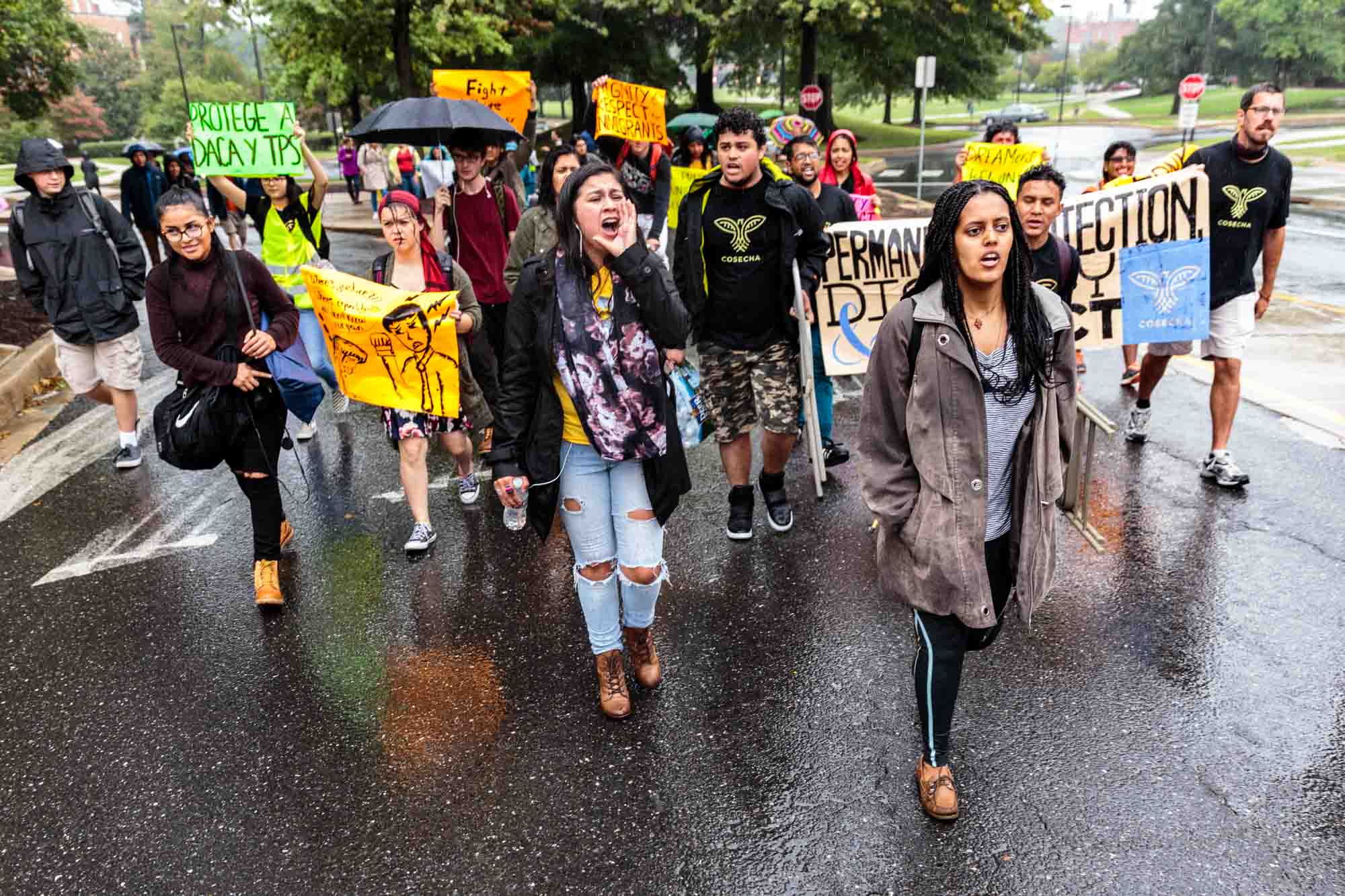University of Maryland students and leaders are speaking out against President Trump’s decision to end the Deferred Action for Childhood Arrivals program, which protects undocumented immigrants who arrived in the country as minors.
In an email to the campus community on Tuesday, university President Wallace Loh urged lawmakers to “make DACA’s provisions into statute.”
“For most of the young adults and students in the DACA program, this is the only country they have ever known,” Loh wrote. “They deserve a legal status that recognizes their contributions to our country and safeguards them from the continuing uncertainty about their future.”
U.S. Attorney General Jeff Sessions announced Tuesday that the federal government will halt the program in six months, giving Congress the opportunity to replace it in the meantime.
[Read more: Protestors block traffic at UMD’s ‘M’ Circle to defend DACA]
DACA allows individuals who came to the United States before June 2007 and were under age 16 when they arrived to receive work or school permits and remain in the country legally in two-year blocks, as long as they have no significant criminal record.
Ten thousand DACA recipients work or go to school in Maryland, and its GDP could lose $509.4 million in their absence, according to a statement from Maryland Attorney General Brian Frosh.
As of fall 2016, there were 113 students attending this university under DACA.
Jocelyn Nolasco, president of this university’s Latinx Student Union, said the group is looking to hold events to educate affected students about what they should do next.
“There’s so many stories of students with DACA that are doing well, doing what they need to do, so you know, it was really painful, especially with the fact that, not just me, but a lot of us have friends and family … it hurts,” said Nolasco, a junior government and politics major.
[Read more: Five years after the DACA program was born, UMD students join DC protest to defend it]
Student Government Association President A.J. Pruitt attended a protest Tuesday morning in front of the White House to oppose Trump’s decision to rescind DACA, alongside SGA speaker of the legislature Jonathan Allen and director of governmental affairs Mihir Khetarpal.
“I can’t imagine the trauma that this is inflicting on our students that are affected by this announcement,” said Pruitt, a senior economics and government and politics major. “And our students that aren’t necessarily immediately affected but that have put time and energy into trying to protect our fellow community members.”
Pruitt said he plans to coordinate SGA efforts to lobby lawmakers for a new DACA bill. This university’s SGA will also work with those of other Big Ten universities, he said.
“A school like Wisconsin, Ohio State, Nebraska — a lot of schools in the Big Ten may not be able to send actual people here to lobby but we’re here, so we’re getting the consent from them to lobby on their behalf.”
Senior staff writer Natalie Schwartz and staff writer Angela Jacob contributed to this story.



